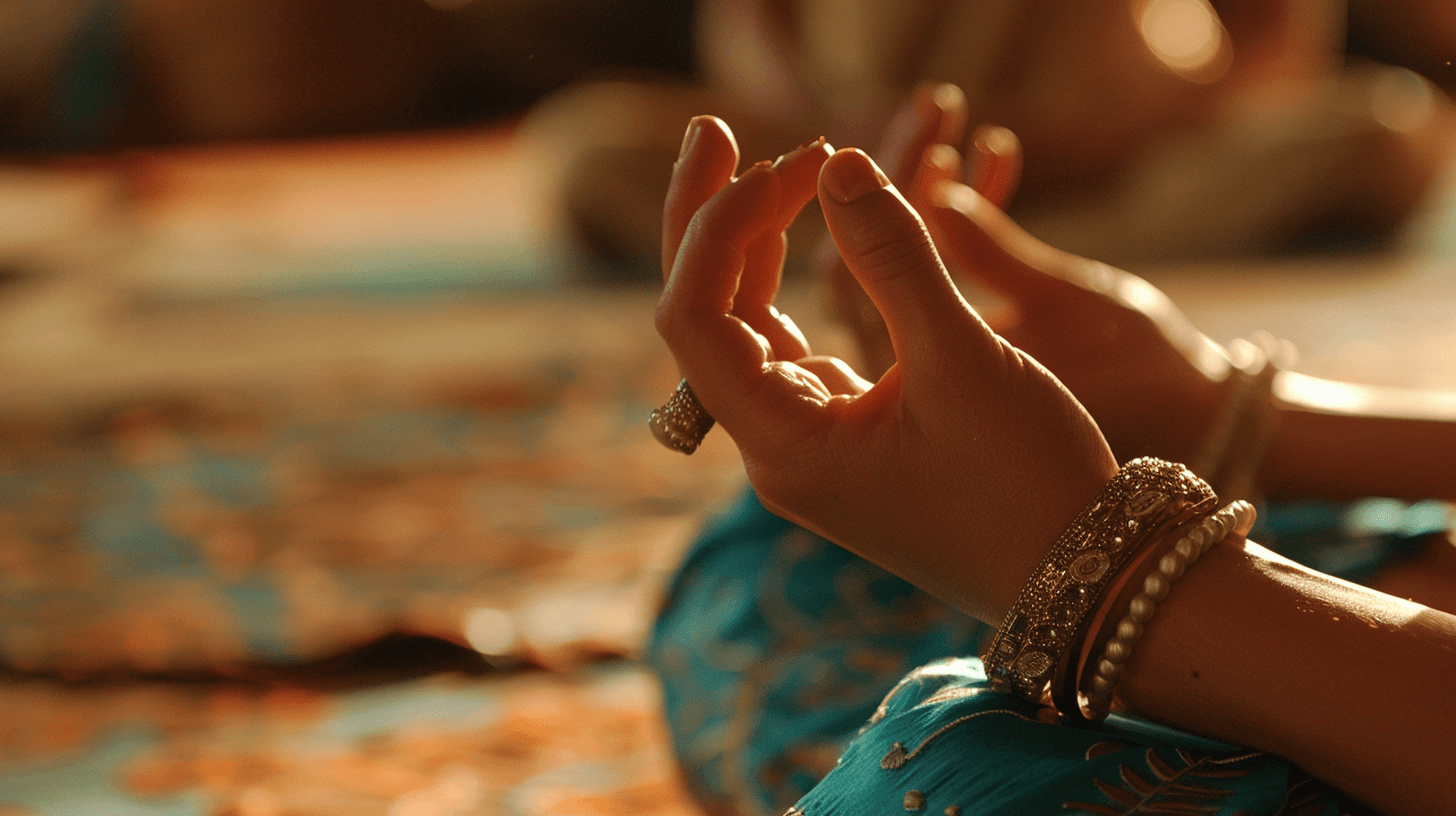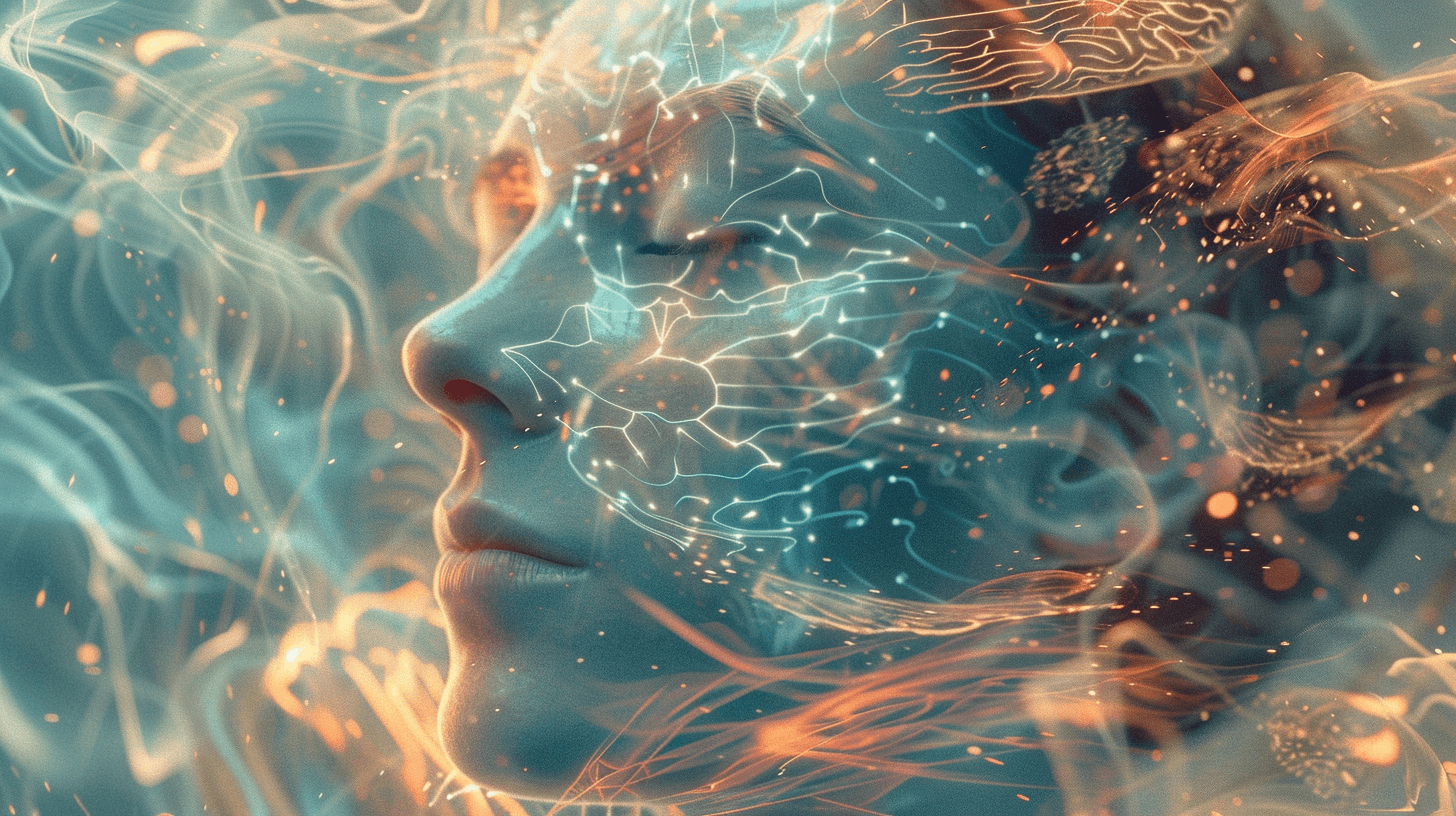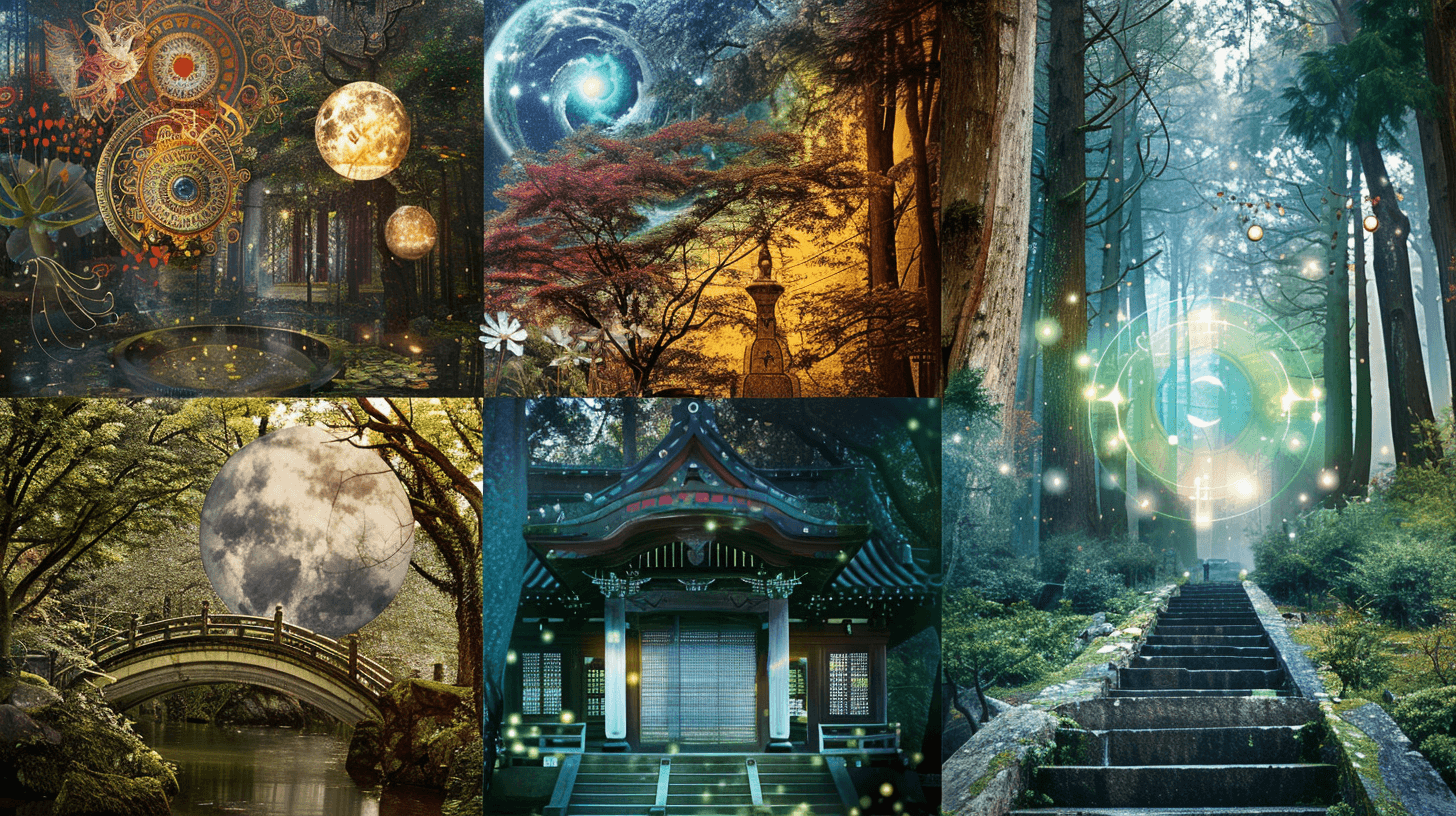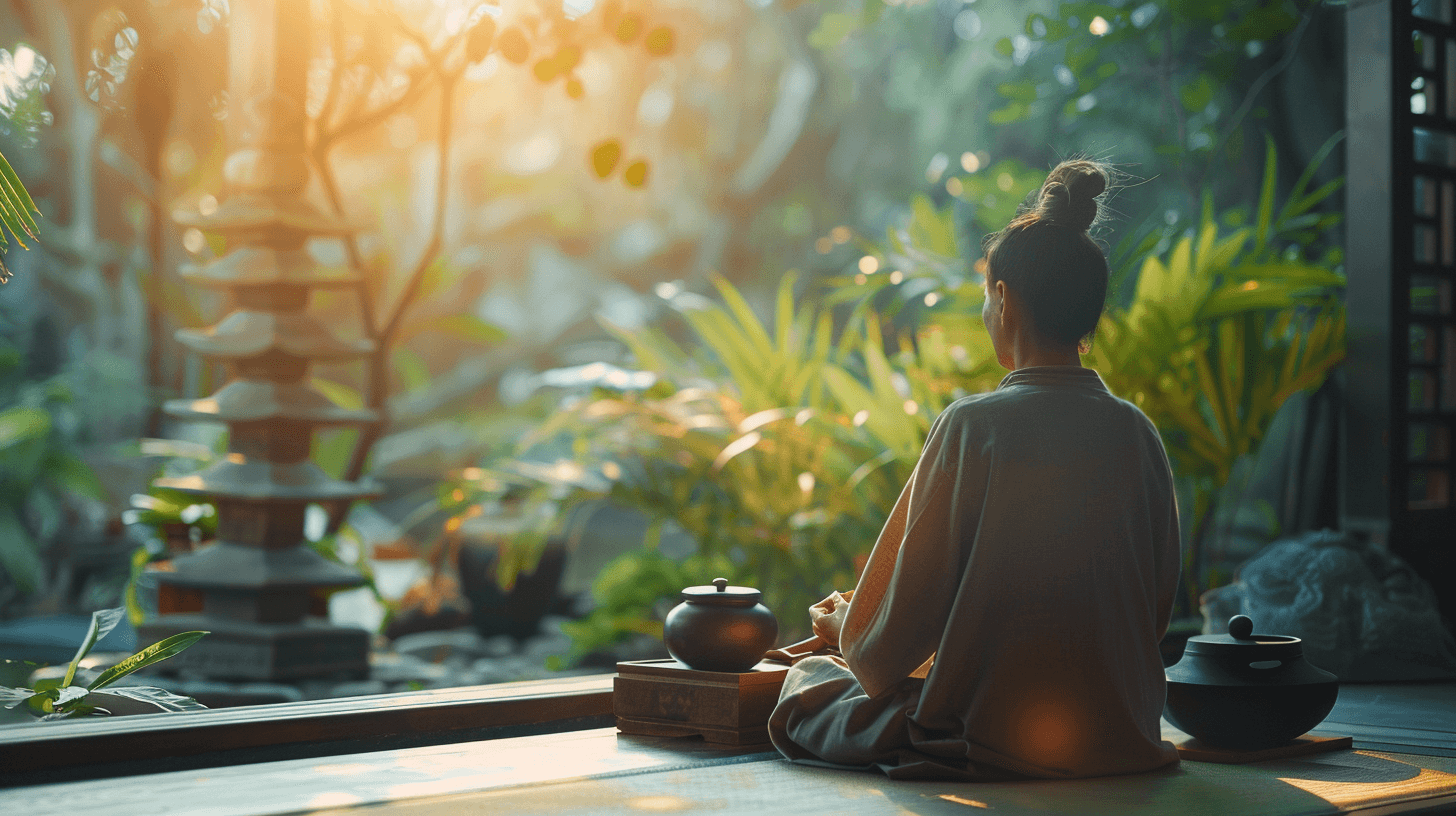Introduction: The Gateway to Self-Discovery Through Meditation

In a world driven by external validation and constant distractions, the journey toward self-discovery has never been more critical—or more elusive. We live in an era where understanding oneself beyond societal expectations and surface-level desires is not only a luxury but a necessity for authentic living.
Meditation, with its age-old roots across cultures and spiritual traditions, offers a unique path to uncovering our true selves. It is not just a practice of mindfulness or stress relief; it is a profound tool for personal transformation and self-realization. Through meditation, we create the inner stillness needed to peel back the layers of conditioning, fears, and limiting beliefs that obscure who we truly are.
This article will take you on a deep dive into the world of meditation for self-discovery, introducing the most insightful books, essential practices, and modern scientific understanding. If you’re ready to embark on a journey to truly understand yourself, you’ve come to the right place.
The Role of Meditation in Self-Discovery

Self-discovery is more than just self-awareness; it’s a continuous process of peeling back the layers of identity to reveal one’s core nature, unshackled by the narratives and beliefs accumulated over a lifetime. To fully discover oneself means transcending the ego—the image we’ve crafted to fit into society, family expectations, and personal fears. It involves reconnecting with an inner wisdom that is often clouded by external influences.
Meditation as a Tool for Deep Self-Awareness
Meditation is not just a technique for calming the mind—it’s a doorway to deeper self-understanding. By focusing inward and observing the mind without attachment, we become more aware of our thoughts, emotional triggers, and habitual patterns. We begin to understand that these thoughts and patterns are not who we are—they are simply the product of our conditioning.
Through meditation, we cultivate the observer mind, a part of us that watches our thoughts without judgment. This shift from identification with the mind to observing the mind allows for profound insights into the nature of our being.
The Neuroscience Behind Meditation for Self-Discovery
Scientific research has provided compelling evidence that meditation changes the brain. The practice of mindfulness enhances neuroplasticity, which is the brain’s ability to reorganize itself by forming new neural connections. Studies show that regular meditation strengthens areas of the brain responsible for self-awareness, emotional regulation, and empathy—key components of self-discovery.
The default mode network (DMN), the part of the brain associated with mind-wandering and self-referential thoughts, quiets down during meditation. This reduces the “mental chatter” that often obscures our true nature and fosters a more profound connection with the present moment.
Top Meditation for Self-Discovery Books

For those embarking on the journey of self-discovery, books offer invaluable guidance. They provide both philosophical grounding and practical techniques for deepening your meditation practice.
“The Untethered Soul” by Michael A. Singer
Singer’s book emphasizes the importance of freeing yourself from the habitual thoughts and emotions that cloud your true self. He encourages readers to meditate on the transient nature of emotions and to detach from the inner voice that constantly critiques and judges. Through this detachment, self-discovery emerges as you move beyond the confines of your mind.
“Becoming Supernatural” by Dr. Joe Dispenza
Dispenza merges science and spirituality to show how meditation can rewire the brain, change one’s biology, and transcend limiting beliefs. His guided meditations are designed to break free from subconscious programming, allowing individuals to access a new, more authentic version of themselves. It’s ideal for those looking for a scientific approach to self-discovery.
“The Power of Now” by Eckhart Tolle
Tolle’s work is all about presence. His teachings emphasize the significance of existing fully in the present moment, which is the gateway to discovering your true self. Through the practice of mindful presence, readers are encouraged to let go of past and future identifications and realize the depth of their being in the here and now.
“Waking Up” by Sam Harris
For those seeking a secular approach to self-discovery, Harris offers insights into meditation from both a philosophical and neuroscientific perspective. He argues that self-transcendence is possible without religion, and that meditation can reveal the non-dual nature of consciousness, dissolving the sense of separation between self and the universe.
“Radical Acceptance” by Tara Brach
Brach combines mindfulness and self-compassion practices to help readers embrace all aspects of themselves, even the parts they’ve been avoiding. Her teachings revolve around the concept of accepting oneself as they are in each moment, fostering deep inner peace and authenticity.
Practical Meditation Techniques for Self-Discovery

To truly embark on the journey of self-discovery through meditation, it’s essential to develop a consistent practice that resonates with your needs.
Mindfulness Meditation
Mindfulness is the foundation of self-discovery. By practicing mindfulness, you train yourself to observe your thoughts and emotions without attachment. Set aside a few minutes each day to sit in stillness, bringing attention to your breath or bodily sensations. Whenever your mind wanders, gently bring it back to the present moment.
Guided Visualization for Self-Insight
This form of meditation involves visualizing scenarios that lead to greater understanding of your inner self. You might visualize meeting your future self or going on an inner journey to uncover hidden truths. Guided visualizations can help unlock insights that might not arise through traditional mindfulness meditation.
Body Scan Meditation
Emotions and unresolved experiences are often stored in the body. A body scan meditation involves mentally scanning each part of your body, noticing sensations, and releasing tension. As you practice this, you may uncover emotions or patterns of behavior tied to certain areas, offering clues to your deeper self.
Post-Meditation Journaling
After each meditation session, spend a few minutes journaling about your experience. Write down any thoughts, emotions, or insights that surfaced during the session. This process helps to crystallize the discoveries made during meditation and track your progress over time.
The Science Behind Meditation and Consciousness Expansion

Brainwave States and Consciousness
Every thought, action, or state of mind we experience is connected to the brain’s electrical activity. Beta waves dominate our waking consciousness, responsible for analytical thinking, problem-solving, and active engagement with the world. While effective for intellectual tasks, these fast brainwaves also correlate with heightened stress and anxiety. Meditation offers a profound shift: it slows down brainwave frequencies, allowing us to tap into more restful and introspective states.
Alpha waves, for instance, emerge when we begin to relax, fostering creativity and intuitive thinking. This is the brainwave state that bridges the conscious and subconscious mind, which allows deeper insights to surface. As meditation deepens, we enter the theta wave state, often associated with daydreaming or deep meditative states. Here, unconscious memories and feelings rise to awareness, giving meditators the chance to confront and release hidden fears or patterns that no longer serve them. Advanced meditators may even reach delta waves, typically linked to dreamless sleep. Delta states are profound; they offer healing and regeneration, both physically and spiritually.
This journey through brainwave states allows the practitioner to gradually transcend the busy, noisy mind, leading to moments of clarity and self-awareness. In these quieter states, we find the mental stillness necessary for profound personal revelations, which is crucial for self-discovery.
Neuroplasticity and Spiritual Awakening
Neuroplasticity, the brain’s ability to rewire itself based on experience, is at the heart of meditation’s transformative power. Just as regular physical exercise strengthens the body, consistent meditation reshapes the brain. Over time, areas responsible for self-awareness, empathy, and emotional regulation grow more robust. This is not a temporary shift, but a lasting transformation—regular meditators experience reduced activity in the amygdala, the brain’s fear center, and heightened activity in the prefrontal cortex, which governs higher thinking and decision-making.
As the brain rewires itself, we start to perceive life from a more conscious, less reactive perspective. The moments of stillness created by meditation allow deeper truths about our identity and purpose to emerge, paving the way for spiritual awakening. In this context, spiritual awakening can be understood as a heightened awareness of the interconnectedness of all life, a dissolution of the ego, and a realization of our true, boundless nature.
Meditation doesn’t just create space for these realizations—it conditions the brain to support them long-term. By weakening neural pathways tied to stress, self-doubt, and fear, and strengthening those linked to compassion, clarity, and inner peace, meditation enhances our capacity to live in alignment with our true selves.
Hormonal and Emotional Balance
Beyond the brain’s neural rewiring, meditation has profound effects on the endocrine system, the body’s hormone regulator. The stress hormone cortisol, which fuels the fight-or-flight response, diminishes with regular meditation practice. Chronically elevated cortisol levels contribute to anxiety, mood swings, and a host of physical ailments. By lowering cortisol, meditation creates the biochemical environment needed for peace and balance.
On the flip side, meditation boosts serotonin, a neurotransmitter often dubbed the “happiness hormone.” Increased serotonin levels lead to a more stable mood, feelings of well-being, and emotional resilience. In a state of emotional balance, we are less likely to react impulsively or be swayed by fleeting emotions. Instead, we gain the capacity to respond mindfully to situations and emotions, deepening our connection to our inner selves.
The hormonal equilibrium fostered by meditation not only promotes physical health but also establishes the emotional clarity necessary for self-discovery. By consistently clearing mental clutter and reducing stress, meditators can access the inner stillness required to connect with their deeper purpose and truth.
Exploring Meditation and Consciousness Across Different Spiritual Traditions

Buddhism
Buddhist meditation practices like Vipassana and Zen are rooted in the concept of mindfulness and non-attachment. Vipassana, which translates to “insight,” focuses on the direct observation of bodily sensations, thoughts, and emotions as they arise and pass. The goal is to observe without reacting, recognizing that everything in life is impermanent. By practicing non-attachment, meditators can transcend ego-based thinking and enter states of higher consciousness. Through this lens, self-discovery is not about uncovering a fixed self, but realizing that the self is fluid, ever-changing, and interconnected with all beings.
Zen meditation, or Zazen, takes a slightly different approach by emphasizing “just sitting” without any specific object of meditation. The simplicity of sitting in stillness helps the practitioner cultivate a mind free from distractions and illusions, leading to insights into the true nature of reality and self.
Hinduism
In Hinduism, the spiritual journey is often intertwined with the practice of meditation. Raja Yoga and Kundalini meditation serve as paths to self-realization. Raja Yoga, often called the “royal path,” integrates physical postures, breath control, and meditation to transcend the ego and unite the individual with the universal consciousness.
Kundalini meditation, on the other hand, focuses on awakening the dormant spiritual energy coiled at the base of the spine. Through deep breathing, visualization, and mantra repetition, practitioners aim to activate this energy and channel it upwards through the chakras, or energy centers. As Kundalini rises, it clears emotional and energetic blockages, leading to heightened states of consciousness, self-awareness, and spiritual awakening.
Both Raja Yoga and Kundalini meditation offer pathways to discovering one’s divine nature, transcending the illusion of separateness, and experiencing unity with the cosmos.
Taoism
Taoist meditation seeks harmony with the Tao—the flow of life that permeates all things. In Taoist meditation, practitioners cultivate stillness, allowing the mind to align with the natural rhythms of the universe. Taoist practices emphasize the importance of balance, spontaneity, and effortless action. As individuals become more attuned to the Tao, they experience a sense of unity with the natural world, dissolving the boundaries of the self.
In Taoism, self-discovery is not about defining the self, but about transcending it, realizing that individual identity is inseparable from the cosmic whole. This practice fosters a profound peace, as one aligns with the effortless flow of the Tao and recognizes their place within the grand scheme of existence.
Western Mysticism
Western mystical traditions, such as Christian contemplative prayer and Kabbalistic meditation, also emphasize transcending ordinary consciousness to connect with the divine. Christian mysticism often focuses on centering prayer—a form of silent meditation that opens the practitioner to the presence of God. This deep communion with the divine leads to a state of oneness, where the boundaries of self dissolve, and the individual experiences divine love and wisdom directly.
Similarly, Kabbalistic meditation involves contemplating the divine attributes of God, known as the Sephiroth, and using mystical symbols to ascend to higher states of consciousness. In both traditions, the goal is to move beyond the egoic mind and experience divine union—a form of self-realization that aligns the individual with their spiritual essence.
How to Integrate Meditation into Daily Life for Lasting Change

Consistency and Daily Habits
To reap the full benefits of meditation, consistency is essential. Meditation works like any skill—the more you practice, the more effective it becomes. However, consistency doesn’t mean rigidity. Even a brief, daily practice of 5 to 10 minutes can yield profound results over time. The key is making it non-negotiable, a sacred part of the day.
Creating a dedicated space for meditation can help reinforce the habit. This space doesn’t need to be elaborate—just a quiet, clutter-free area where you can meditate without distraction. Establishing a morning or evening routine also strengthens your commitment. As meditation becomes ingrained in your daily life, it will naturally deepen your connection to inner peace and self-awareness.
Mindful Living
Meditation doesn’t stop when you leave the cushion. Integrating mindfulness into your daily life is crucial for sustaining the peace and clarity cultivated during formal practice. Mindfulness is about bringing conscious awareness to all activities, whether you’re eating, walking, working, or conversing with others.
This practice encourages a sense of presence in every moment. By focusing on the present rather than ruminating on the past or future, mindfulness allows for greater inner peace throughout the day. This ongoing awareness helps anchor the self-discovery experienced in meditation, turning everyday activities into opportunities for growth and reflection.
Conclusion: Embarking on Your Journey Toward Higher Consciousness

The path to self-discovery through meditation is not linear, nor is it a destination that can be reached overnight. It is a continuous, evolving journey, one that deepens with time and practice. Each session brings new insights, each mindful moment offers another layer of understanding. The books and practices discussed here are essential companions on this transformative journey, offering both guidance and inspiration as you continue to uncover the depths of your true self.
Self-discovery is not about becoming someone new; it’s about peeling away the layers of conditioning, fear, and doubt to reveal the authentic self that has always been there. Embrace the process, and you will find that the peace, clarity, and fulfillment you seek are already within you—waiting to be discovered.







